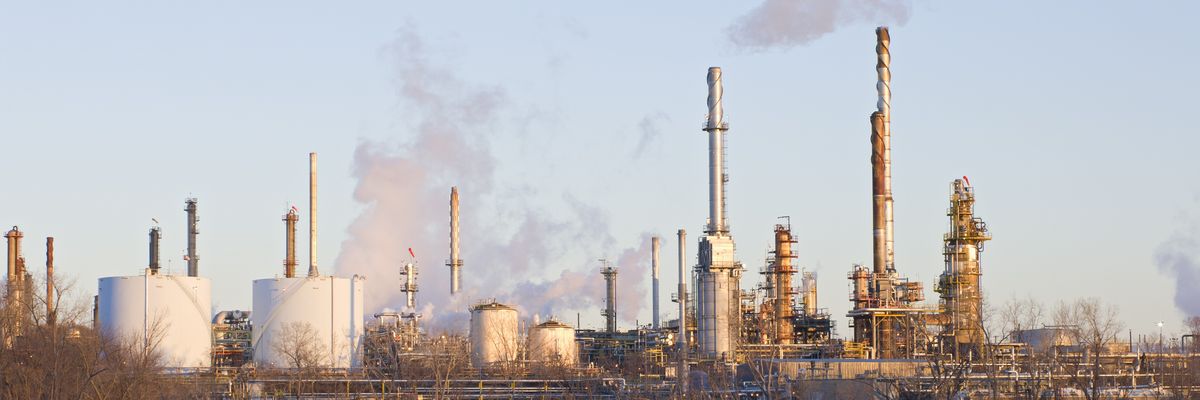For the third time in less than a year, the U.S. Supreme Court on Monday allowed a key case against the fossil fuel industry to proceed in state court, delivering a win for the movement to make polluters pay for driving the climate emergency.
"This decision is another step forward for Minnesota's efforts to hold fossil fuel giants accountable for their climate lies and the harm they've caused," said Center for Climate Integrity president Richard Wiles, pointing to the previous denials of other cases last April and May.
"Big Oil companies will continue fighting to escape justice, but for the third time in a year, the U.S. Supreme Court has denied their desperate pleas to overturn the unanimous rulings of every single court to consider this issue," he continued.
"It's time for these polluters to give up their failed arguments to escape state courts."
As legal leaders of dozens of U.S. states and municipalities have launched climate lawsuits in recent years, the fossil fuel industry has attempted to evade accountability by shifting the cases to federal court—a strategy that's proven unsuccessful.
Wiles argued that "after three strikes, it's time for these polluters to give up their failed arguments to escape state courts and prepare to face the evidence of their climate deception at trial."
The U.S. Supreme Court's Monday decision came in a case filed in 2020 by Democratic Minnesota Attorney General Keith Ellison against ExxonMobil, Koch Industries, and the American Petroleum Institute (API), based on the state's consumer protection laws.
"The fraud, deceptive advertising, and other violations of Minnesota state law and common law that the lawsuit shows they perpetrated have harmed Minnesotans' health and our state's environment, infrastructure, and economy," Ellison said at the time.
The justices declined Big Oil's request to review the 8th U.S. Circuit Court of Appeals' March decision that the case belongs in state court. Justice Brett Kavanaugh, an appointee of former GOP President Donald Trump, would have taken the case, in line with his position last year.
"I appreciate the court's consideration and decision," Ellison said in a statement Monday. "It aligns with 25 federal court decisions across the country, all of which have found that cases like ours rest on these defendants' failures to warn and their campaigns of deception around their products' contributions to the climate crisis. The court's decision confirms these cases are properly filed in state courts."
"Taken together, the defendants' behavior has delayed the transition to alternative energy sources and a lower-carbon economy, resulting in dire impacts on Minnesota's environment and enormous costs to Minnesotans and the world," he stressed. "Now, the case can move forward in state court, where it was properly filed, and we can begin to hold these companies accountable for their wrongful conduct."
Cassidy DiPaola, communications director for Fossil Free Media and the Make Polluters Pay campaign, declared Monday that "today's decision is an important step forward for accountability and justice."
"The Supreme Court has now laid out an unmistakable path forward," she added, "for not only Minnesota's consumer protection case against ExxonMobil, Koch Industries, and API, but the dozens of cases against the fossil fuel industry popping up across the county."
This post has been updated with comment from Keith Ellison.
